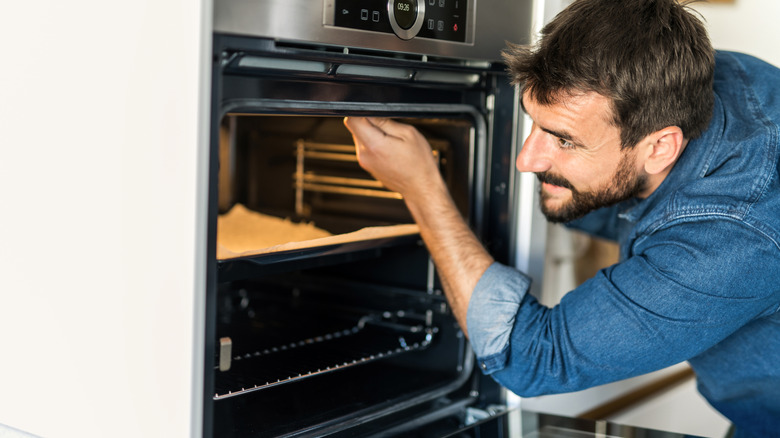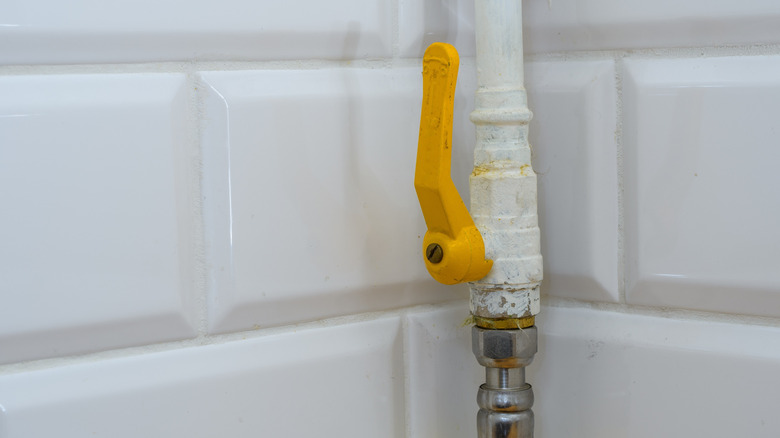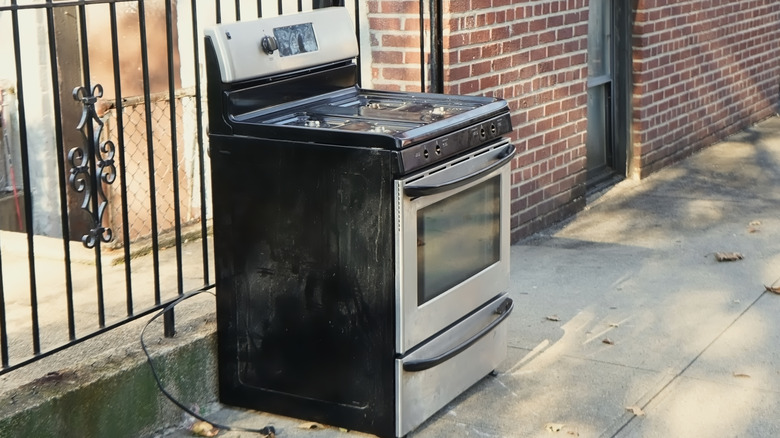Why Your Gas Oven Isn't Heating Up (& How To Fix It)
Many people are understandably squeamish about problems with their gas appliances. The only things worse than not having your souffle ready on time is (or at least might be) exploding your home or gassing yourself. All of these things would, of course, put quite a damper on your dinner plans. Fortunately, if your gas oven isn't heating up, there's usually a simple explanation and often even a simple solution. Hunker spoke exclusively with Garret Bergstrom, virtual appliance expert at Frontdoor, about what might be going on when your oven isn't going on. There are two common causes, he said. "More often than not, the issue is related to ignition or gas supply."
Since most ovens have electronic ignition and all gas ovens should have a shut-off valve on the wall near the oven, the first steps in diagnosing (and potentially fixing) this problem are quick and intuitive. "You should confirm that the power in your home is working properly by plugging a small appliance, such a hair dryer, into a wall outlet and seeing if it turns on," Bergstrom said. "You should also ensure that the wall gas supply valve is in the 'on' position." Assuming the igniter is getting electricity and the burner is getting gas, the next step is to check the separate bake and broil systems. "Try both bake and broil options to determine if certain functions are working, or if the whole unit is affected. These are basic checkpoints."
When your gas oven is having a more serious problem
There are, of course, times when the trouble with your gas oven is more serious than a tripped circuit breaker or a gas valve mistakenly turned off. Because dealing with gas is serious business, you should be alert to the potential for a gas leak and the resulting dangers. When Hunker exclusively interviewed Bergstrom, he gave us a rundown of the signs of serious trouble. "If a gas odor is present when attempting to start the oven this should raise concern, especially if the unit is not igniting," he said. "There are a variety of ways to figure out if there is a gas leak such as but not limited to: heavy gas odor, gas leak detector (available at most hardware retailers), flu-like symptoms, hissing sounds, and possibly dead plants in surrounding areas."
Bergstrom warns against using any source of open flames in such a situation, including candles, smoking, or any other source. The critical first step is to eliminate any gas that might have been leaked into the home. "Turn off gas supply valve(s)," he said. "Open windows and properly ventilate [the] area to prevent illness and reduce potential danger to occupants and property."
When to start shopping for a new oven
Of course, it's also possible that your gas oven is simply failing for some other reason, and sometimes that reason is the disrepair that happens to every appliance eventually. There are signs your oven is nearing the end of its lifespan, and that you should be on the lookout for a replacement gas oven or a gas stove with an electric oven. "When part(s) are no longer available to purchase, this is a good sign that a unit may no longer be serviceable," Bergstrom said in an exclusive interview with Hunker. "If the finish on the inner oven liner is chipped, rusted and browned beyond repair, then this is also a key indicator to start shopping."
But failing such major signs of breakdown, don't get ahead of yourself. Some repairs that require the help of a pro are still relatively minor fixes. Just walk through all the appropriate diagnostics for your model ... for example, do the gas stove burners work, while the oven doesn't? There's a reasonable chance that a simple fix is right around the corner.


